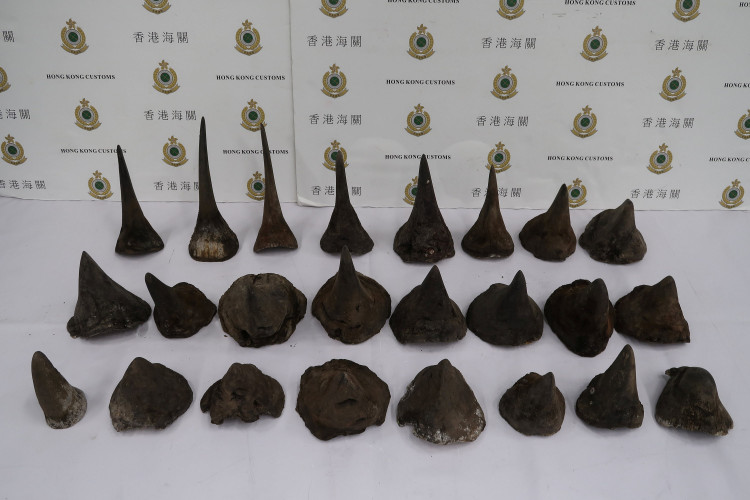Hong Kong International Airport authorities have seized what seems to be the largest shipment of illegal rhino horns in the establishment's history. According to reports, customs officials were able to successfully flag down two checked-in bags that were filled with over 40 kilos of rhino horn. The estimated market value of the seized rhino horns is believed to be somewhere around US$1 million.
The checked-in packages that were seized by officials reportedly came from South Africa and were on their way to Vietnam; with Hong Kong as a stopover. Authorities reportedly arrested two male passengers who were listed as the owners of the bags. The passengers' identities were not disclosed, but one was revealed to be a 28-year-old, while the other was 33 years of age. Both of them are currently in custody and are now under investigation to uncover their source and their potential buyers. They reportedly boarded a plane from Johannesburg, where they checked in the boxes, on their way to Ho Chi Minh City in Vietnam.
The latest seizure at the Hong Kong International Airport comes at the heels of a recent bust that involved tons of illegal animal products. The previous bust involved tons of pangolin scales and elephant ivory tusks. According to the wildlife conservation group Wild Aid, the recent bust came as a big shock for them given just how much was in the bags. The amount of rhino horn seized at the airport was reportedly 20 percent of the entire amount that was seized in the country since 2013.
Hong Kong continues to be one of the most prominent places where illegal wildlife trading is still taking place. The former British colony is the current gateway to mainland China and most of the shipments coming from abroad will have to go through the country's ports and customs. Organized criminal organizations still operate in the country, importing tons of illegal wildlife products to be used for traditional medicinal purposes in China and across different countries in Southeast Asia.
Under the Convention on International Trade in Endangered Species, all types of rhino products, including its highly sought after horns, are banned. There are currently only 29,000 live rhinos in existence and their numbers continue to dwindle due to illegal poaching.
China has for the most part done a lot to fight the illegal wildlife trade. Hong Kong previously increased the penalties for smuggling endangered species to include a hefty fine of up to US$1.27 million and possible imprisonment of up to 10 years.






